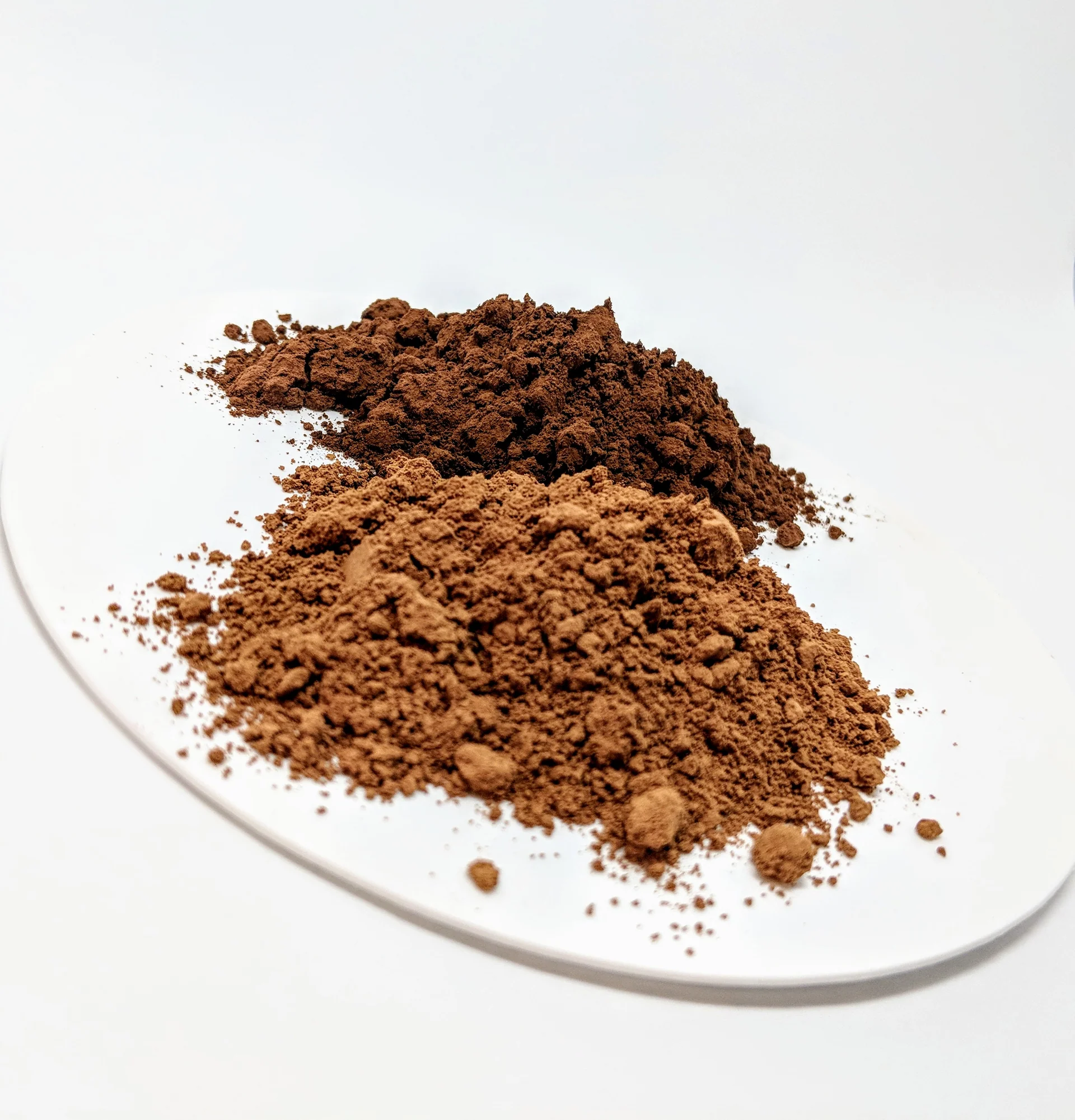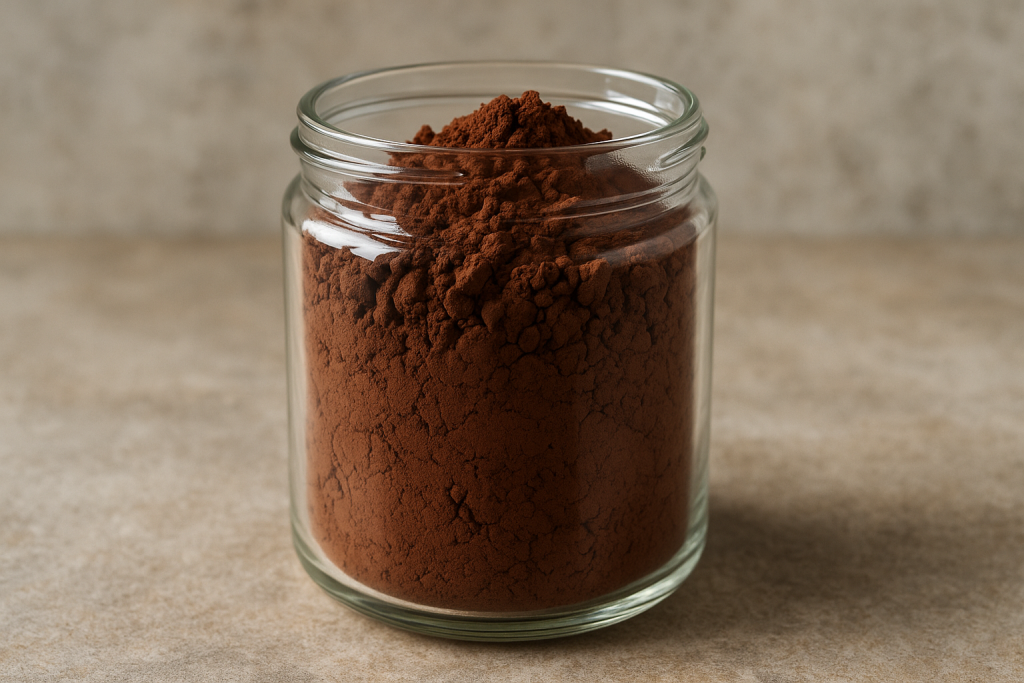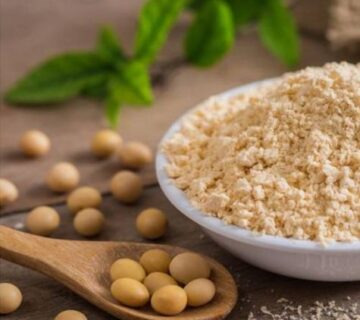In Morocco’s fast-growing food manufacturing sector, precision is no longer a luxury—it’s a requirement. From chocolate molding lines in Casablanca to beverage factories in Tangier, every production manager knows that ingredient consistency can determine whether a batch succeeds or fails. Among these ingredients, few hold as much influence as alkalized cocoa powder.
This humble brown powder is far more than a flavoring agent—it defines texture, color, pH balance, and mouthfeel in chocolate, confectionery, and beverage formulations. Choosing the right alkalized cocoa powder supplier in Morocco is therefore a strategic decision that affects everything from equipment efficiency to brand reputation.
At MT Royal, we’ve worked closely with manufacturers across North Africa and the GCC, witnessing firsthand how the right cocoa ingredient transforms production performance. In this article, we’ll take you through every critical aspect—from technical fundamentals and quality standards to supplier selection and industry best practices—so you can make smarter sourcing decisions and sustain operational excellence.
What Is Alkalized Cocoa Powder?
Before diving into procurement strategy, it’s essential to understand the ingredient itself.
Alkalized cocoa powder, also known as Dutch-processed cocoa, is produced by treating natural cocoa powder with an alkaline solution (typically potassium carbonate). This process neutralizes acidity, reduces bitterness, and gives the powder a darker, richer color. The result is a smoother flavor profile and enhanced solubility—perfect for industrial chocolate, biscuits, beverages, and ice cream formulations.
In manufacturing, these properties translate to easier blending, reduced machine wear, and more uniform results. For large-scale factories, especially those running high-capacity mixers and continuous tempering machines, even small improvements in flowability or moisture absorption can save hours of downtime per month.
Why Alkalized Cocoa Powder Matters in Manufacturing
For most factories, cocoa powder represents a fraction of total material cost—but it has an outsized impact on the final product’s appearance, taste, and stability. Here’s why:
- Color Uniformity: Alkalized cocoa offers a deep, consistent hue ideal for chocolate coatings, bakery fillings, and compound chocolates.
- Flavor Control: The alkalization process mellows acidity and enhances cocoa’s natural aroma, producing a balanced flavor profile that appeals across markets.
- Mixing Efficiency: With improved dispersibility in fats and liquids, it reduces clumping and shortens mixing times—key in high-speed production lines.
- Machine Compatibility: Its low acidity minimizes corrosion in stainless-steel equipment, extending machine lifespan and lowering maintenance costs.
In other words, choosing a high-quality alkalized cocoa powder isn’t just about taste—it’s about operational reliability and cost optimization.
The Moroccan Manufacturing Context
Morocco’s food processing industry is one of the most dynamic in North Africa. The country’s proximity to Europe, strong logistics infrastructure, and access to regional markets make it a hub for confectionery exports. Local factories in Casablanca, Marrakech, and Agadir serve not only domestic brands but also contract manufacturing for multinational clients.
Yet, one of the biggest challenges faced by production managers is ingredient sourcing reliability—particularly for imported cocoa derivatives. Supply chain delays, fluctuating quality, and inconsistent pH levels can disrupt entire production schedules.
That’s why many industrial buyers are now partnering with specialized cocoa suppliers like MT Royal, who offer both local logistics support and access to globally recognized brands such as Latamarko—renowned for its precision-engineered European cocoa ingredients.
MT Royal: Empowering Industrial Production with Reliable Cocoa Ingredients
At MT Royal, we understand that manufacturers need more than just raw materials—they need consistency, traceability, and technical partnership. We supply a comprehensive range of cocoa powders, cocoa butter, and cocoa liquor for industrial applications, with full documentation and batch traceability.
We’ve seen firsthand how even a minor inconsistency in cocoa properties—like moisture variance or particle size—can affect yield and product appearance. That’s why we source only from certified producers and maintain strict quality control protocols to align with ISO, HACCP, and food safety standards.
For Moroccan factories scaling up production or diversifying their formulations, our role is to simplify the sourcing process—ensuring timely delivery, stable pricing, and technical consistency.
Premium Quality: The Latamarko Benchmark
When discussing premium-grade cocoa ingredients, Spanish manufacturers like Latamarko consistently set industry benchmarks. Known for meticulous engineering, advanced processing technology, and flavor precision, Latamarko alkalized cocoa powders are widely used by European confectioners and now increasingly favored by North African producers.
Latamarko’s alkalized powders deliver:
- Stable pH control (6.8–7.5 range), essential for reproducible color and flavor.
- Low moisture content for extended shelf life and efficient handling.
- Uniform fineness, reducing sedimentation in beverage applications.
- Exceptional solubility, ideal for instant drink mixes and syrups.
In our experience supplying manufacturing facilities across the region, integrating Latamarko powders often results in fewer rejects, smoother blending, and improved sensory performance—key advantages for factories targeting export-grade product quality.
Common Procurement Mistakes in Cocoa Powder Sourcing
Even experienced procurement teams sometimes overlook factors that determine long-term performance. Here are a few recurring pitfalls to avoid:
- Buying Based Solely on Price
The cheapest cocoa powder often comes with hidden costs: inconsistency, high fat variability, or shipment delays. Over time, these can increase rework and waste. - Neglecting pH Matching
Alkalized cocoa powders vary in pH; choosing one incompatible with your existing recipe can alter texture and color outcomes. Always match pH to formulation needs. - Ignoring Fat and Particle Distribution
A small deviation in fat percentage can impact viscosity and mouthfeel, especially in compound coatings. - Overlooking Storage Conditions
Cocoa powder’s hygroscopic nature means poor storage can quickly degrade quality. Reliable suppliers ensure proper humidity control throughout the supply chain.
By partnering with an established distributor like MT Royal, manufacturers can avoid these issues through proactive technical support, product trials, and sample validation.
Technical Considerations for Industrial Applications
Let’s break down how alkalized cocoa behaves across major manufacturing sectors:
1. Chocolate Production
Cocoa powder acts as a core structural component in compound chocolate and cocoa mass formulations. Alkalized varieties offer smoother melting behavior, darker coloration, and reduced astringency—ideal for molded or enrobed products.
2. Beverage Manufacturing
Instant cocoa drinks demand powders that disperse quickly and remain stable in suspension. Alkalized cocoa improves both solubility and mouthfeel while reducing sediment formation in liquid systems.
3. Bakery & Confectionery
In baked goods like brownies, wafers, and sandwich biscuits, alkalized cocoa provides consistent coloring and enhanced heat stability. Its low acidity also helps prevent unwanted reactions with leavening agents.
4. Ice Cream & Dairy Applications
Cocoa’s flavor intensity and emulsification properties directly influence texture. Using a fine, alkalized variant allows for uniform blending without altering dairy pH or freezing behavior.
Industrial Case Example: Reducing Downtime Through Ingredient Consistency
A medium-sized confectionery plant in Marrakesh once struggled with frequent nozzle clogging during chocolate coating runs. The issue traced back to fluctuating fat absorption levels in their cocoa powder batches.
After switching to Latamarko’s alkalized powder through MT Royal, the plant reported a 28% reduction in cleaning downtime and more stable viscosity throughout production. That’s the power of ingredient consistency—less disruption, higher throughput, and measurable cost savings.
Selecting the Right Alkalized Cocoa Powder Supplier in Morocco
Finding a supplier isn’t just about availability—it’s about partnership. Here’s what to look for when evaluating potential cocoa powder vendors:
| Criteria | Why It Matters |
|---|---|
| Quality Certification | Ensures compliance with international food safety and ISO standards. |
| Technical Support | Access to formulation advice and sample testing. |
| Supply Chain Reliability | Predictable lead times and storage management reduce downtime. |
| Brand Range | Ability to offer multiple brands and specifications for different price tiers. |
| After-Sales Service | Post-delivery support and documentation management. |
At MT Royal, we integrate all these elements into a single sourcing framework—supporting factories with tailored cocoa solutions based on their production volumes, formulation goals, and market positioning.
Sustainability and Ethical Sourcing
Today’s manufacturers face increasing scrutiny over sustainability. Consumers—and by extension, global buyers—want assurance that ingredients like cocoa are ethically sourced.
Top-tier brands such as Latamarko implement traceability programs to ensure cocoa beans are sourced responsibly from certified farms. At MT Royal, we align with suppliers who share these values, helping manufacturers in Morocco maintain both product integrity and brand reputation in export markets.
FAQs: Cocoa Powder Procurement for Industrial Buyers
Q1: What’s the difference between natural and alkalized cocoa powder?
Natural cocoa is more acidic and lighter in color, while alkalized cocoa has a neutral pH, darker hue, and smoother flavor—better suited for industrial use.
Q2: What’s the ideal pH for industrial cocoa powder?
Most industrial recipes favor a range of 6.8 to 7.5 for optimal flavor and color consistency.
Q3: How should alkalized cocoa be stored?
Store in a cool, dry environment (below 25°C) with relative humidity under 60%. Proper sealing prevents flavor loss and moisture absorption.
Q4: Can alkalized cocoa powder be used in dairy-based drinks?
Absolutely. Its neutral pH minimizes curdling and offers superior flavor dispersion in milk systems.
Q5: Does MT Royal provide bulk or customized packaging?
Yes. We offer both standard 25kg bags and customized bulk delivery solutions depending on plant requirements.
The MT Royal Advantage
When Moroccan factories choose MT Royal, they gain access not only to high-quality cocoa ingredients but also to an experienced industrial partner. We’ve collaborated with food processors, confectioners, and beverage manufacturers across North Africa, helping them achieve greater production stability, cost efficiency, and product excellence.
Our partnerships with trusted European suppliers like Latamarko ensure that every kilogram of cocoa powder delivers measurable value on the production floor.
We don’t just supply ingredients—we help build consistency, predictability, and trust into every batch.
Final Reflection: Building Manufacturing Strength Through Ingredient Integrity
Sustained success in Morocco’s chocolate and confectionery sector depends on more than equipment investment. It’s about relationships—between manufacturers and their materials, between suppliers and their clients, and between precision and performance.
In the industrial world, reliability is the currency of progress. When you select the right alkalized cocoa powder supplier in Morocco, you’re not just sourcing an ingredient—you’re reinforcing your factory’s foundation for quality, efficiency, and long-term competitiveness.
At MT Royal, we’ve seen how small decisions about materials lead to big outcomes on the factory floor. Whether you’re formulating premium chocolate bars or instant cocoa beverages, the right partner makes all the difference. And as Morocco continues its rise as a regional manufacturing powerhouse, ingredient integrity will remain at the heart of every successful operation.
latamarko alkalized cocoa powder lm60
cocoa powder for chocolate production-Best price
Food industry raw materials – list of products
Types of Gelatin from Turkish Manufacturer
Alkalized Cocoa Powder Bulk Supplier







No comment